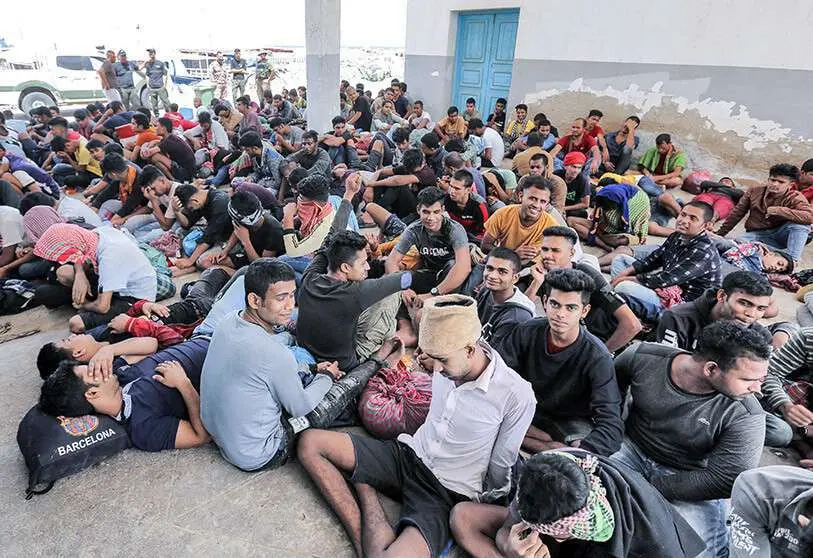Thousands of Syrian refugees are subjected to 'inhumane' conditions in Libyan centres

Syrians continue to emigrate from their country. Syria's worrisome economic crisis, coupled with food and medicine shortages and the aftermath of the civil war, has led thousands of Syrians to leave their homes in search of a better future. In this context, Libya continues to receive Syrian refugees, most of them from the Daraa governorate in the south of the country.
These new waves of refugees aim to migrate to Europe and try to escape the difficult living conditions resulting from the conflict and the measures imposed by government forces in the areas they control, in particular forced recruitment.

However, the situation in Libya's migration and detention centres is reportedly committing systematic human rights violations against the Syrian refugee population. Libyan NGOs denounce that the number of Syrian migrants held in detention centres exceeds 200, and point out that "they are being treated inhumanely and subjected to torture and deprivation of food and medicine". They also warn that some complaints from relatives indicate that the authorities in charge of the centre are demanding ransoms of up to two thousand dollars in exchange for the release of the detainees.
The Euro-Mediterranean Human Rights Monitor also criticised what it described as "inhumane" practices committed by the Libyan authorities against hundreds of Syrian migrants detained in their prisons and called for "immediate intervention" to put an end to these "abuses of human dignity".

Furthermore, the observatory held the Libyan government responsible for all "arbitrary" practices inside prisons and detention centres, and pointed out that the government has "the responsibility to implement the relevant local and international standards".
Euro-Med Monitor has joined these allegations and called on the Libyan government to open an urgent investigation into the detention conditions of hundreds of Syrian migrants that is capable of putting an end to all arbitrary and illegal practices against them, as well as holding all those involved in these egregious violations accountable.
Alongside this, it called on the UN Mission in Libya and the Office of the High Commissioner for Human Rights to conduct field visits to prisons and detention centres, review detention conditions and submit documented reports to the relevant UN authorities. In doing so, they intend to ensure that the competent bodies take all possible measures to limit violations of the rights of migrants detained in the country.

The observatory's researcher, Youssef Salem, said that several detainees reported that they were subjected to humiliating treatment, "including beatings and not being provided with adequate food and drinking water only twice a day".
He also pointed out that detainees are forced to pay sums of money in excess of a thousand dollars in exchange for their release, through what are known as "brokers" who would receive these funds through agreements between them and prison directors.

According to the observatory, former detainees claimed that prison administrations and detention centres follow a policy of medical negligence against sick detainees, and fail to provide them with the necessary treatment, especially those suffering from chronic diseases, which reportedly led to the death of at least one Syrian detainee and the deterioration of the health of others. According to Médecins Sans Frontières, "two detention centres in Libya are in a catastrophic medical situation and the detainees are the most direct victims".
Amnesty International's regional director for Eastern Europe and Central Asia, Marie Struthers, concluded that "tens of thousands of refugees and migrants are being held in an area where the conflict is intensifying. Those who try to flee by sea risk being intercepted and returned to detention centres, often in conflict zones. Europe is complicit in these abuses".








